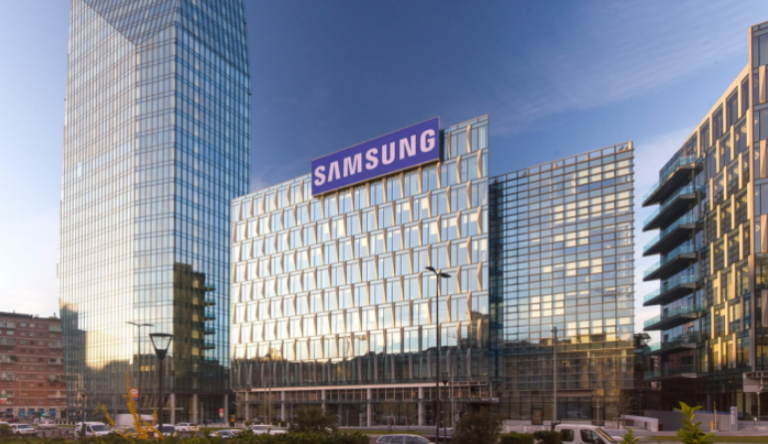 INFRA
INFRA
 INFRA
INFRA
 INFRA
INFRA
Samsung Electronics Co. Ltd. saw its quarterly profit collapse after suffering a steep drop in demand for memory chips that resulted from consumers buying fewer electronic gadgets.
In its fourth-quarter earnings results published today, the South Korean company revealed that profit from its semiconductor business fell by a stunning 90%, to just 270 billion won (about $220 million) for the three months ended Dec. 31. Samsung said the decline was the result of its biggest customers working through piles of inventory, meaning very few are buying new chips at present.
Samsung’s memory chip business accounts for the lion’s share of its overall revenue and profit, and so the decline had a significant impact on its bottom line. The company said total revenue for the quarter came to 70.46 trillion won, down 9% from a year earlier. Operating income fell 69% from a year ago, to 4.3 trillion won, below the average estimate by analysts of 5.8 trillion won.
Samsung’s net income, however, came to 23.5 trillion won, thanks to a onetime item resulting from a local tax law change. Despite that, investors were clearly worried, as Samsung’s stock fell more than 2% in the wake of the report, even though the company had already warned earlier this month that the results would not be good.
For fiscal 2022 as a whole, the picture was a little rosier, with Samsung reporting a new record of 302.23 trillion won in annual revenue and a 43.38 trillion won operating profit.
Samsung’s revenue decline is not only the result of lower sales, but also lower prices of memory chips. Bloomberg reported today that the industry has been hit by a historic slump as consumers drastically cut back on purchases of electronic gadgets amid a global economic slowdown. Soaring interest rates and rising inflation mean that memory chip inventories have piled up, leading to double-digit declines in the price of the components.
“The business environment deteriorated significantly in the fourth quarter due to weak demand amid a global economic slowdown,” Samsung said in a statement. “Earnings at the Memory Business decreased sharply as prices fell and customers continued to adjust inventory.”
Unfortunately for Samsung, things are unlikely to pick up anytime soon. Goldman Sachs analyst Giuni Lee told Bloomberg that memory chip prices are expected to continue falling over the first half of 2023. “We expect the company to be in the red for both DRAM and NAND starting in the first quarter,” he said, referring to Samsung’s dynamic random-access memory and flash-based storage components.
Samsung has come under a lot of pressure to lower its memory chip output and reduce its capital expenditure, in line with moves by its competitors. Recently, Micron Technology Inc. told investors it’s planning to reduce spending on new chip fabs and equipment and cut its output, while Kioxia Holdings Corp. has announced it will reduce output by 30%. However, Samsung has remained defiant, with recent reports claiming that the company actually intends to increase its memory chip output this year.
The picture doesn’t improve very much in Samsung’s handset business, the MX and Networks segment. That unit also saw declines, with consolidated revenue of 26.9 trillion won and an operating profit of 1.7 trillion won, due to what Samsung said is “weak demand in the mid- to low-end segments.”
The only real bright spot was Samsung’s Visual Display Business, which saw revenue grow to 15.58 trillion won on increased sales of “premium products” such as its Neo QLED TVs and “Super Big TVs,” the company said. Even so, the unit reported an overall loss 60 billion won.
Support our mission to keep content open and free by engaging with theCUBE community. Join theCUBE’s Alumni Trust Network, where technology leaders connect, share intelligence and create opportunities.
Founded by tech visionaries John Furrier and Dave Vellante, SiliconANGLE Media has built a dynamic ecosystem of industry-leading digital media brands that reach 15+ million elite tech professionals. Our new proprietary theCUBE AI Video Cloud is breaking ground in audience interaction, leveraging theCUBEai.com neural network to help technology companies make data-driven decisions and stay at the forefront of industry conversations.